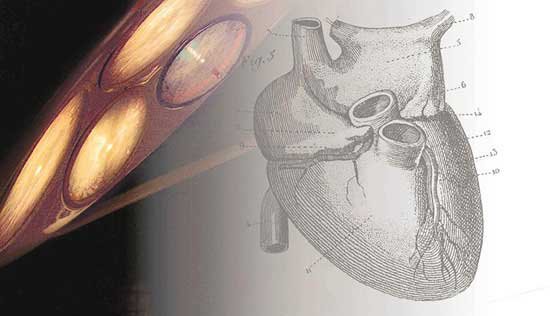'So grateful': Lives changed after receiving organs - USATODAY.com
Firefighter Bill Jensen was burned over 70% of his body and received donated skin in various colors. He talks about how he realizes "everything I took for granted."
By Daniel Horgan for USA TODAY
Bill Jensen and the rest of the firefighters on Engine 24 were making progress when a strong wind suddenly blew the fire up out of the canyon in Malibu, Calif., that October day in 1996.
There was no time to run as a wall of flame engulfed them. When the inferno passed, Jensen staggered to his feet. His clothing had disintegrated and his skin was hanging off of him. More than 70% of his body had second- and third-degree burns.
He surprised doctors by surviving, but recovery was slow and painful. Exposed areas were covered with donated skin.
Forty surgeries and 11 years later, Jensen is grateful to the people of all colors who donated parts of their bodies.
"I have skin on my back that's brown, skin that's yellow. It was supposed to be temporary, but it took," Jensen, now 63, said recently from his home in Burbank, Calif.
He says the fire made him realize the importance of life "and everything I took for granted."
He makes regular appearances at burn centers, his charred jacket and helmet from the fire in tow. He also has made appearances with transplant activist Reg Green. Green explains what donor families experience; Jensen talks about what it's like for those who receive the donations.
"We talk to them, counsel them," he says. "No doctor out there can explain it like another burn survivor. We show them there's life after burn."
His daughter's heart beats in his chest
Chet Szuber had been on the waiting list for a new heart for four years. He could barely get up a flight of stairs. A predawn phone call in 1994 brought him and his wife, Jeanne, grim news: Their daughter, Patti, had been gravely injured in a car crash in Tennessee.
The Berkley, Mich., couple and other relatives gathered at the hospital in Knoxville to wait and hope. Szuber remembered that Patti once told him she had signed a donor card. The family soon received news that their precious Patti — 22 years old and just starting out as a nurse — was gone.
A transplant coordinator told Szuber he could have his daughter's heart. He refused, saying it would be a constant reminder of his loss.
But he reconsidered. His family needed him; they urged him to accept the heart. Now that heart beats inside Szuber, a revitalized man. The transplant is believed to be the only child-parent heart donation in the world.
Szuber, who is now 73, is happy to think of his daughter every day. "She's still part of the family."
He now has the stamina to run a Christmas tree farm, go hunting and enjoy winters in Florida. He also speaks in public on behalf of organ donation.
"She didn't just help me," he says of his daughter. "She gave two blind ladies vision, two other people her kidneys, I got her heart and another her liver."
The liver donation proved a lifesaver, Szuber says. The day Patti died, a 15-year-old girl in Arkansas had a liver transplant, and it was rejected. Her outlook was bleak. She received Patti's liver and went on to graduate from high school and get married.
"When we met her, the girl's mother grabbed my wife, and she wouldn't let go, she was so grateful," Szuber says. "She just hung on and hung on."
Twins Anabel and Isabel Stenzel were born with cystic fibrosis, a disease that attacks the lungs and the digestive system.
The disease made their family's daily life a torment. As they grew older, their parents had to lay the girls on pillows and paddle their chests for as long as five hours a day to loosen the thick mucus blocking their lungs. The girls hacked continuously and had difficulty even walking.
They spent their childhoods in and out of hospitals with lung infections. At age 24, Anabel had only 30% of normal lung function and was put on oxygen.
Then in June 2000, her pager went off. A set of lungs was waiting for her. The operation was a success, and Anabel went on to climb the famed Half Dome peak in Yosemite National Park in California carrying a heavy backpack.
Isabel had a harder time of it, and in February 2004, her loved ones gathered at the hospital preparing for the worst as she faded in and out of consciousness. But a new set of healthy lungs became available just in time. She now swims laps, hikes and does cross-country skiing.
Both twins now live in the San Francisco Bay Area and recently published a book about their triumph over cystic fibrosis. In a twist, Anabel's body later rejected her lungs; luckily, she received a new donated set of lungs in July.
"I'm busy and enjoying life again," Ana said recently after returning from a trek in the Santa Cruz mountains. "To be able to hike again is a miracle." Isabel, for her part, was excited to be on the DonateLife float in the New Year's Day Tournament of Roses Parade in Pasadena, Calif.

No comments:
Post a Comment